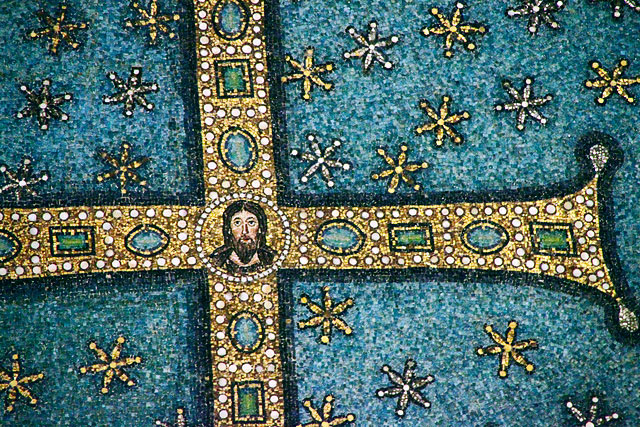The Son is the image of the invisible God, the firstborn over all creation. For in him all things were created: things in heaven and on earth, visible and invisible, whether thrones or powers or rulers or authorities; all things have been created through him and for him. He is before all things, and in him all things hold together. (Colossians 1:15-17)
All things are created in Christ, through Christ and for Christ. Nothing exists apart from him. He is not on the outside of anything. He is within everything, holding everything together, causing everything to continue to exist. This is true not only of material things but of spiritual things as well — it is true of everything that has been created.
God is not merely a being, not even just the greatest of all beings. He does not merely have being — he is being, and is the necessary source of all other beings. God does not merely exist; he is existence. If he were not, if existence were a separate thing that God possessed and that caused him to be, then existence would be a higher being than God. It must be, then, that God is existence and being itself, who causes all other things to be. God revealed himself as being when he identified himself to Moses as “I AM that I AM.” Several times in the Gospel, the Lord Jesus revealed himself simply as “I AM”. In Acts 17, Paul affirmed that we all “live and move and have our being” in God.
The relationship between God and his creation is not merely like that of an artisan and his artifact. An artisan can place his creation on a shelf or pack it up and ship it off to a client and be done with it. But God is not only the maker of creation, he is present throughout as the continuing source of its being. It continues to exist because God is present within every part of it. If God were absent from any part, that part would simply not exist. The idea that anything could continue to exist without God being present within it as the cause of its continued existence comes from a much later philosophy than any known by the New Testament writers or the early Church Fathers.
As the creator and sustainer of everything that exists, then, Christ is necessarily present everywhere in the universe. His presence permeates everything. He is in every part of everything, keeping them all going. He is not identical with every part — that would be pantheism — but he is ever present within them as the source of their continued existence.
The spiritual realm also is his, and he is, likewise, present throughout. Though there are souls in rebellion against him, Christ is never absent from them, for their continued existence, even as spirit, is totally dependent upon him. It is his very presence — his loving, sustaining presence — in them that becomes a torment for them for as long as they turn away from him.
The presence of Christ does not just surround us — it pervades us. Yet, though we live and move and have our being in Christ, we do not pervade him. He remains who he is and we remain who we are. We do not lose our identity but we begin to realize our true identity — who we were really created to be in Christ. In turning to Christ, we are embracing the source of our existence, blessing the source of our identity, and we experience his loving presence not as torment but as the blessing it is.
Christ is the source of all being. Only in him do we come to know our true selves. It is only in Christ, then, that we find true reconciliation — with God, the world, each other and ourselves — to become what we really are. This is God’s plan in Christ concerning all things, and in this way, Christ is making all things new.
For God was pleased to have all his fullness dwell in him, and through him to reconcile to himself all things, whether things on earth or things in heaven, by making peace through his blood, shed on the cross. (Colossians 1:19-20)





